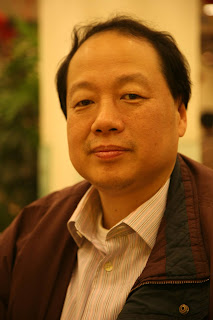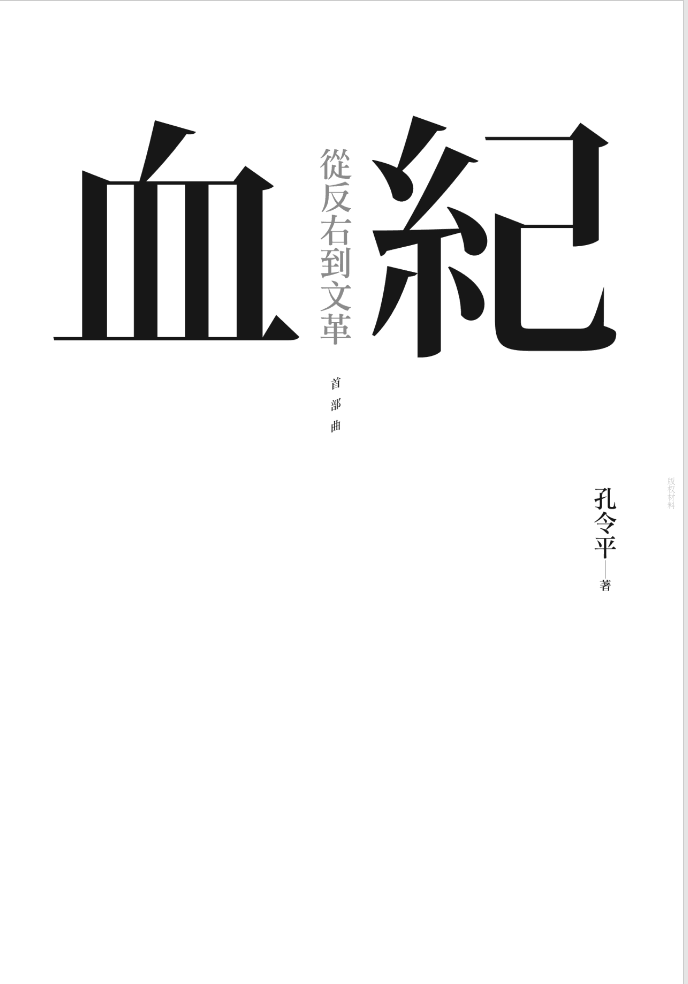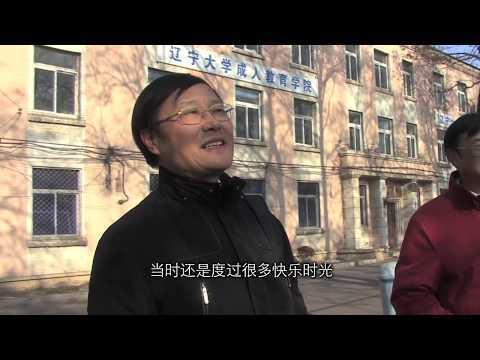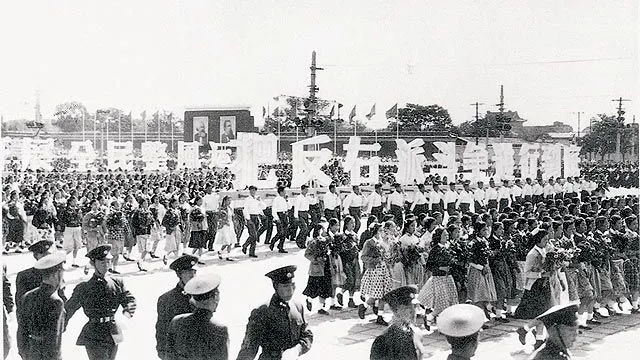Explore the collection
Showing 55 items in the collection
55 items
Book
1966: Memories of Our Generation
This book is a collection of nineteen feature articles by well-known contemporary scholars, researchers, and writers. They recapitulate their own experiences during the Cultural Revolution in a literary style.
When the Cultural Revolution broke out, they were all young people in their twenties. These reminiscence articles are the result of a rare collective reflection after the end of the Cultural Revolution. The authors described their own experiences during the Cultural Revolution in the articles, providing a personal perspective on history.
The chief editor of this book is the philosopher and activist Xu Youyu, a former researcher at the Institute of Philosophy, Chinese Academy of Social Sciences. Xu signed and made suggestions on Charter 08, and also is a co-founder of the New Citizens Movement. Since 2015 he has resided in New York City, where he has been a visiting scholar at the New School for Social Research.
This book was published by China Federation of Literary and Art Circles Publishing Corporation in 1998.
Book
Active Life
This is a collection of essays by Cui Weiping, a professor at the Beijing Film Academy. The title, inspired by Hannah Arendt, covers a wide range of fields from poetry and movies to politics and ethics, and tells the stories of fascinating people, the construction of their inner world and external lives. These people include Hai Zi, Wang Xiaobo, Arendt, Woolf, Beauvoir, Tarkovsky, Kremer, Herbert, Havel, and many others. Behind these seemingly unrelated names, there are hints of these two interdependent spiritual dimensions: on the one hand, the construction of the external world in which we live; on the other hand, the construction of our own inner world, which cannot be neglected. This book, published by Renmin University of China Press in 2003, has had a significant impact on the development of civil society in China.
Book
Anthology of Essays by Zhang Zuhua, An
Zhang Zuhua is an independent scholar in China. In his early years, he served as a member of the Standing Committee of the Central Committee of the Communist Youth League, Secretary of the Youth League Committee of the Central State Organs. Later, he worked at a private research institute, mainly engaged in political modernization, the theory and practice of constitutional democracy, and China's political reform. He was a key participant in China's Charter 08 in 2008. This book is a collection of his political essays.
Book
Blood Chronicle: From the Anti-Rightist Movement to the Cultural Revolution
The author of this book, Kong Lingping, who lives in Chongqing, was labeled as a rightist in his youth. He has lived through all the political movements of the Chinese Communist Party (CCP). This book is based on the author's own experience, from birth to 2009.
Book
Blood Letters: The Untold Story of Lin Zhao, A Martyr in Mao's China
This book is the brainchild of Prof. Lian Xi of Duke University, U.S.A. In March 2018, it was published in English by Basic Books in the U.S.A. In 2021, it was published in Chinese by Taiwan Business Press. Based on a large amount of historical materials as well as first-hand interviews, this book reconstructs Lin Zhao's life. It depicts the political development before and after the birth of New China, and presents the resilient will and beliefs of intellectuals in this era.
To purchase this book, please visit [the publisher](https://www.hachettebookgroup.com/titles/lian-xi/blood-letters/9781541644229/?lens=basic-books), or a bookseller.
Book
Captive Spirits: Prisoners of the Cultural Revolution
This book is the memoir of Chinese economist's Yang Xiaokai. It tells the stories of more than two dozen characters he met while imprisoned in Changsha during the Cultural Revolution. Published in 1994, it was reprinted in 1997 and 2016. The English version is titled *Captive Spirits: Prisoners of the Cultural Revolution*, published by Stanford University Press in 1997.
Book
Chronicle of Jiabiangou
Jiabiangou was a labor reform farm in Jiuquan County, Gansu Province, where "rightist" prisoners were held. October 1957, nearly 3,000 educated people were detained there. In October 1961, when the higher-ups corrected the "left-leaning" mistakes of the Gansu Provincial Party Committee and began repatriating the rightist prisoners, less than half had survived.
Writer Yang Xianhui spent five years interviewing more than a hundred people and brought to light the truth that had been sealed for more than forty years. Originally published by Tianjin Ancient Books Publishing House in 2002, this book also includes other short and medium-sized stories by Yang Xianhui.
Film and Video
Chronicle of Western Liaoning, A
In 1959, in the desolate Lingyuan area in the western part of Liaoning Province, a group of intellectual rightists from the Shenyang University arrived. There, they were to labor and be reformed alongside criminal prisoners in the prison, while digging mines to build railroads. How did the Communist Party reform the intellectuals? What kind of encounters did these rightist intellectuals go through? Hu Jie's camera restores this history.
Book
Dictionary of Names of 1957 Victims
An estimated 460,000 to 1.4 million people were persecuted in the Anti-Rightist Campaign (1957-1959). The event was one of the most important political campaigns in the history of the People's Republic because it effectively silenced independent intellectual thought in the Mao era, paving the way for disasters, such as the Great Famine and the Cultural Revolution.
Wu Yisan spent more than ten years researching the lives of this campaign's victims. At 33,000 entries, the list is far from complete but it gives the human perspective on the tragedy in a scope never before attempted. Among the devastating details is the story of Qian Zhongshu, one of 20th century China's best-known writers. Qian's father, Qi Jibo, had been declared a Rightist but died before he could be publicly humiliated. So Qian Zhongshu and his brother-in-law Shi Shenghuai, were forced to attend a mass rally and be criticized in his place. They did so while holding the dead man's "spirit tablet," a piece of wood used in a family shrine with the deceased name, and birth and death dates.
The dictionary was originally published as a CD-Rom. Mr. Wu has made the text version available to the China Unofficial Archive and we are now working to make it a searchable PDF for those who cannot access the CD-Rom version. The Dictionary of Names of 1957 Victims was published by the Humanities Publishing Center and funded by the Laogai Research Foundation.
Film and Video
East Wind State Farm
In 1957, two hundred teachers, students, and cadres from Kunming, Yunnan were among the hundreds of thousands of Chinese people labeled as “Rightists” for criticizing the Chinese Communist Party. They were sent to the East Wind State Farm, located in Mi-le County in Yunnan, for 21 years of “thought reform” in the countryside. These inmates witnessed the policies of the Great Leap Forward first-hand: they took part in deforestation, agricultural, and industrial projects in the countryside, which precipitated the Great Famine. Later, during the Cultural Revolution, their camp was visited by large groups of youths “sent down” from the cities, who worked on the farm with the “Rightists.” In 1978, these “Rightists” were finally rehabilitated and allowed to leave.
This documentary examines the policies and campaigns of the Maoist era through the eyes of those who were persecuted and exiled. Director Hu Jie pieces together this long and complex story through collecting dozens of extensive interviews with inmates as well as staff who served through decades of the camp’s existence. These people’s vivid memories and personal accounts shed light on the harrowing lifestyle of not only the two hundred “Rightists” of East Wind State Farm, but also the scores of dissidents and youths who experienced the Great Leap Forward and the Cultural Revolution.
Book
Experience: My 1957
Born in 1932, He Fengming and her husband Wang Jingchao were both labeled "rightists" during their work at the Gansu Daily Newspaper. In late April 1958, they were sent down to work at the Anxi Farm in Jiuquan. Her husband was sent to the famed Jibiangou Farm, where he died of starvation during the famine of 1960, but she survived. In order to refuse to forget, she spent ten years writing a 400,000-dollar self-narrative, *Experience - My 1957*. The book was published by Dunhuang Literary Publishing House in 2001.
Book
First Man against the Cultural Revolution and His Co-Conspirators, The
On August 8, 1966, the Central Committee of the Communist Party of China adopted the "Sixteen Articles" of the Cultural Revolution. Soon after, Liu Wenhui, a young mechanic in Shanghai who had been labeled as a "rightist" in 1957, wrote pamphlets and leaflets clearly opposing the Cultural Revolution, the "Sixteen Articles", and authoritarianism and tyranny. He was arrested on November 26 of that year. Four months later, he was executed for "counter-revolutionary crimes." Liu Wenhui became the first person known to have been publicly shot for opposing the Cultural Revolution. The author of this book, Liu Wenzhong, was Liu Wenhui's co-defendant and survived thirteen years in prison. In this book, Liu Wenzhong describes in detail his brother Liu Wenhui's ideology as well as how he was killed by the tyrannical government.
Book
Gan Cui: The Soul of Peking University-From Lin Zhao to the 1989 Democracy Movement
This book was originally published in the series *Micro Traces of the Past* - Documentary Volume - No. 6, edited by Huang Heqing, founded in 2007. Gan Cui, a student at Renmin University of China, was classified as a rightist in 1957. He became lovers with Lin Zhao, a rightist student who came from Peking University to work in the data room. Gan Cui was later sent to Xinjiang. When he returned, he learned that Lin Zhao had been killed. This book (in 140,000 words) is a manuscript of Gan Cui's memories of Lin Zhao in the context of the 1989 pro-democracy movement.
Book
Great Power Sinking: A Memo to China, A
This book is a collection of political essays by Nobel Peace Prize winner Liu Xiaobo. It is a sister volume to *Single-Edged Poisoned Sword - A Critique of Contemporary Nationalism in China*, which covers many aspects of Chinese politics, including: one-party dictatorship, powerful capitalism, rights defense, June Fourth, and nationalism.
Book
Gu Zhun and His Times
This book is about Gu Zhun, a Chinese economist, historian and philosopher. Gu Zhun was the first person to put forward the theory of China's socialist market economy, which became a key concept in the Reform era, helping to justify the use of markets in a socialist system. He also devoted himself to the study of politics, history and philosophy, translating several foreign classic works on economics and democracy and writing a large number of articles. Due to his independent thinking and dissent, he suffered repeated political persecution, including during the Anti-Rightist Campaign and the Cultural Revolution (for more information on Gu Zhun, see his biographical entry). As he personally experienced the Anti-Rightist Campaign, the Great Famine, and the Cultural Revolution, his diary is also considered a valuable source of information on these historical events. By documenting and analyzing his life, thoughts, and the eras in which he lived, Wang's book shows how Gu Zhun persisted in his "pursuit and search for the freedom and equal rights that are inherent to all human beings " (author's preface) in an era when independent thinking was suppressed. This book was published in 2015 by the Great Mountain Culture Publishing House in Hong Kong.
Book
Gu Zhun Diary
This book contains the only three surviving diaries of Gu Zhun: one from October 1959 to January 1960 when he was exile to work in a labor camp in Shangcheng, Henan Province, one from October 1969 to September 1971 when he was sent to work in the May Seventh Cadre School in Xi County, Henan Province, and one from October 1972 to October 1974 when he returned to Beijing. The first two diaries, written during the Great Famine and the Cultural Revolution, record the tragedies Gu Zhun witnessed during the Great Famine as well as his own endurance of hunger, and how he underwent repeated punishment and ideological education as a Rightist. The third diary is a simple record of his life, but it shows that Gu Zhun spent the last two years of his life almost exclusively in reading, translating and writing. Since he personally experienced the Anti-Rightist Campaign, the Great Famine, and the Cultural Revolution, these three diaries are considered a valuable source of information about these historical events. In addition to Gu Zhun's diary, the book includes Gu Zhun's translation manuscript of a chapter on Christianity in English political scientist George Catlin’s book *A History of Political Philosophers* published in 1939. The book also includes his last letter to his sixth brother Chen Minzhi, several articles by other people commemorating Gu Zhun, and interviews with Gu Zhun's close friends. The book was published by the Economic Daily Press in 1997.
Book
Holy Virgin on the Altar - A Biography of Lin Zhao, The
This book is a biography of Lin Zhao written by mainland writer Zhao Rui and published by Taiwan's Xiuwei Information Publishing House in 2008. The book describes Lin Zhao's life and family background in detail. The "Appendix" contains the recollections of several people involved.Purchase link: https://www.books.com.tw/products/0010431680.
Book
Hu Yaobang and the Vindication of Wrongful Convictions.
This book recounts Hu Yaobang's efforts to overturn people falsely accused of being "Rightists" during the Anti-Rightist Campaign of the 1950s. It is written by Dai Huang (1928-2016, formerly known as Dai Shulin), a Communist propagandist and later senior editor at the Xinhua News Agency, who was also persecuted in the Mao era and rehabilitated thanks to Hu's efforts.
This means that the book is not entirely objective–Dai does not analyze too closely Hu's history of slavishy following Mao's policies. Instead, he aims to capture the excitement felt by the hundreds of thousands who suffered in the Mao era and who were rehabilitated in the 1970s and '80s thanks to Hu. At 300,000 Chinese characters, or more than 200,000 English words, it is a weighty compendium that includes previously unreported details of famous public intellectuals and party members persecuted by the party and how Hu rehabilitated them. For example, Dai recounts the case of Ge Peiqi, who was a Communist Party spy who was toppled for his opposition to the party's corruption and privilege. Dai explains the case in depth and how Ge was eventually cleared.
Dai represented a liberal wing of the party that believed in the need for the party to address its mistakes. At his funeral people such as Du Daozheng (the editor of China Through the Ages 炎黄春秋) and Tie Liu (publisher of the alternative history journal 往事微痕) attended. The book also contains a preface by Li Rui, who participated in China Through the Ages and was also a mainstay of the party's liberal wing.
电影及视频
In Search of Lin Zhao's Soul
Hu Jie narrates the life of Lin Zhao, a Christian dissident who was condemned as a Rightist in the late 1950s and executed during the Cultural Revolution. Prior to becoming a mentcritic of the government, Lin Zhao was an ardent believer of communism. She demonstrated talent in writing and speaking as a star student in Peking University. However, after criticizing the government in 1957 during the Hundred Flowers Campaign, she was cast as anti-revolutionary. Despite the government’s attempts to silence her, Lin Zhao continued to speak and write publicly, including contributing two epic poems to Spark, an underground student-run journal. In 1960, she was arrested, and despite being released briefly in 1962, spent the rest of her life behind bars, under extremely poor living conditions. Nevertheless, she continued to write in prison, sometimes with her blood. In 1968, at the age of 36, she was executed by a firing squad.
In this documentary, Hu Jie showcases many of Lin Zhao’s surviving writings and poetry. These pieces often contain criticisms of the communist regime, as well as commentary on policy issues pertaining to labor and land reform. In making this film, Hu Jie traveled around China to interview friends and associates of Lin Zhao, who knew her as a student, activist, or prisoner. This documentary includes excerpts from interviews with them, which inform us about Lin Zhao’s personality and motivations.
This documentary has contributed to a widespread revival of interest in Lin Zhao, who had almost become a forgotten figure until the film’s appearance.



















